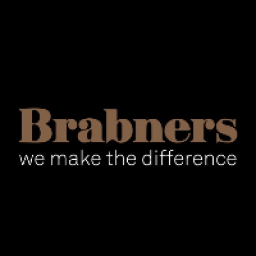At inception, most family businesses will either start with very few or no employees at all. However, at some point during the business life cycle it is inevitable that with growth the family will need to bring on board the right individuals to assist with the long-term success of the business.
The first step in this process is to identify gaps within the business where vacancies lie, assessing new streams of work and how these can be secured, whilst identifying the particular area in which the business requires further support and/or experience to grow.
Once the needs of the business have been clearly identified with regards to recruitment, the family will need to focus their minds on the skillset, experience and characteristics required for an individual to succeed in that role.
This will involve the family identifying the values required to enable an individual to seamlessly integrate into the typically close knit team and become part of the furniture. Hiring the wrong people can be disruptive and distressing (not to mention costly) at the best of times, but particularly in family businesses due to the intimate relationship between the employer (often the family as a whole) and the individual.
Albeit not the only key to success, getting the right people on board can be a huge asset to any business. Many family owners rely on loyal, trustworthy and faithful employees, to help drive the business forward in the long-term.
So, what do family business owners need to know when bringing on board new individuals?
Section 1 of the Employment Rights Act 1996 (S1 ERA 1996) requires employers to give certain information about an individual’s employment in writing, also referred to as ‘s1 particulars’.
When and how should the particulars be provided?
In order to legally comply with s1 ERA 1996, the majority of the particulars must be provided to the individual on or before the first day of their employment. This changed on 6 April 2020, as previously the s1 particulars could be provided within two months of the employee’s start date.
The majority of the particulars must be provided within a single statement. However, some information, such as training details, can be provided separately within the time limit specified under s1 ERA 1996, provided that these are easily accessible and clearly signposted.
Most employers will choose to provide this information in a written contract of employment, with reference to the company’s handbook or other policies or procedures. This is to ensure maximum flexibility and protection on behalf of the employer, as the absence of a specific contractual right in many regards can result in the employer being unable to take commercial decisions later down the line.
The statement is also intended to be useful and informative to the employee and a first point of call for any information relating to their employment as agreed between the parties at the outset.
Who benefits from the rights of s1 ERA 1996?
The right to s1 particulars was extended to workers on or after 6 April 2020. Most business owners are familiar with the status of an employee, however, the definition of a worker can be somewhat confusing and often overlooked.
A worker is generally an individual who has a contract or other arrangement to do work or provide services personally to the employer for a reward. There should also be a degree of control exercised by the employer in that the worker must carry out the work or service when required. Workers will not be engaged as a limited company and the employer should not be a client or customer.
We would always recommend that business owners review the employment status of those who they are looking to engage, based on the proposed arrangements and how these would translate in practice, in order to ensure that the correct contract providing the most protection and flexibility is put in place.
What are the key “particulars” to be provided?
- Details of employer and worker
- Commencement date
- Continuous service date
- Rate and frequency of pay
- Terms and conditions relating to:
- Hours of work
- Sickness and incapacity
- Other paid leave
- Pension and pension schemes
- Other benefits
- Length of notice periods for termination by either party
- Job title and brief description
- Term of the employment
- Probationary periods
- Place of work
- Collective agreements
- Whether the worker is required to work outside of the UK for a period of more than one month (if so, additional details are required)
- Training entitlements and obligations
- Reference to disciplinary and grievance rules
The above list is a very basic overview of the type of information required within a s1 statement. However, we would always recommend seeking legal advice to ensure that all appropriate terms are included within the contract.
What are the consequences of failing to comply with s1 ERA 1996?
An employee (and worker who started work on or after 6 April 2020) can make a complaint to an Employment Tribunal where their employer has:
- failed to provide a section 1 statement;
- provided an inaccurate or incomplete statement; or
- failed to provide notification of the written changes.
However, the employee can only make such complaint as part of a wider claim for example for claims for unfair dismissal and/or discrimination. If the employee succeeds in such claims, the Employment Tribunal must award at least two weeks’ pay and may increase it to four weeks’ pay if it considers it just and equitable, where there has been a failure to comply with s1 ERA 1996.
The current statutory caps that apply for claims for a failure to comply with s1 ERA 1996 between 6 April 2021 and 5 April 2022 are £1,088 for two weeks’ pay and £2,176 for four weeks’ pay. However, these are likely to be awarded in addition to other compensation relating to the worker’s successful claims and any legal costs incurred as a result of defending a claim.
What about policies and procedures?
Whilst s1 ERA 1996 requires employers to reference information relating to disciplinary and grievance procedures, there is no legal requirement for these policies and procedures to form part of the contract of employment itself.
In fact, we advise that policies and procedures instead form part of a non-contractual Staff Handbook. The reason behind this is two-fold:
- If policies and procedures are contractual, the employer cannot deviate from these policies and procedures irrespective of the individual circumstances i.e. where an employee has less than two years’ service and may not have protection from unfair dismissal. If a breach occurs, employers may be liable for any losses that emanate from this.
- In order to make changes to contractual documents there may be a need to consult with the employees in order to obtain their agreement. This can prove to be time consuming and expensive if the employer has to consult with employees each time that changes are being made.
Policies and procedures are again crucial HR documents that are required to lay the foundations for a healthy and successful working relationship. They are intended to establish the boundaries, parameters and rules of the relationship, detailing how those are going to be monitored and enforced. The absence of clear policies and procedures can contribute and/or cause a breakdown in the working relationship and leave the employer exposed to claims being brought in the Employment Tribunal.
Furthermore, a failure to follow the ACAS Code of Practice on disciplinary and grievance procedures can result in an uplift to compensation awarded to an employee in the event of a successful claim, by up to a hefty 25%. Therefore, it is imperative that the ACAS Code of Practice and any ACAS guidance (albeit not legally binding) is incorporated into policies and procedures to ensure best practice at all times.
What do family business owners need to do next?
We understand that laying the correct HR foundations is often overlooked when running a family business, as the focus is on recruiting and engaging the right people, which is often a time critical decision. However, as outlined above a failure to comply with s1 ERA 1996 can result in an extra claim being brought by an employee, resulting in a further award of up to £2,176 in some cases.
Whilst this may seem like a negligible award and an unnecessary investment at the outset, the absence of clear terms and conditions, policies and procedures can result and/or contribute towards the breakdown in the working relationship. Having clear and understandable boundaries in place from the outset will lay strong foundations for a long and healthy working relationship and avoid exposure to claims in the Employment Tribunal.
Furthermore, investment into proper contracts of employment will often secure ongoing protection for the employer at the end of the employment relationship, for example, only very limited trade secrets are protected by an ongoing duty of confidentiality without an express clause dealing with the issue.
We would recommend that business owners prepare different contractual documentation for employees, workers and self-employed contractors that can then be tailored to mirror the terms agreed for each individual and their applicable employment status.
Our team of employment law experts have vast experience in preparing and drafting key HR documentation tailored to suit the needs of owner managed and/or family owned businesses. We can help you address any existing issues by auditing your contracts and policies and ensuring that you can demonstrate compliance in this area, together with the key protections needed to safely navigate your business to success. If you are interested in finding out more, please contact a member of the Employment team or visit our dedicated Family Business page.
This contains a general overview of information only. It does not constitute, and should not be relied upon, as legal advice. You should consult a suitably qualified lawyer on any specific legal problem or matter.
 WRP Group Ltd
WRP Group Ltd







